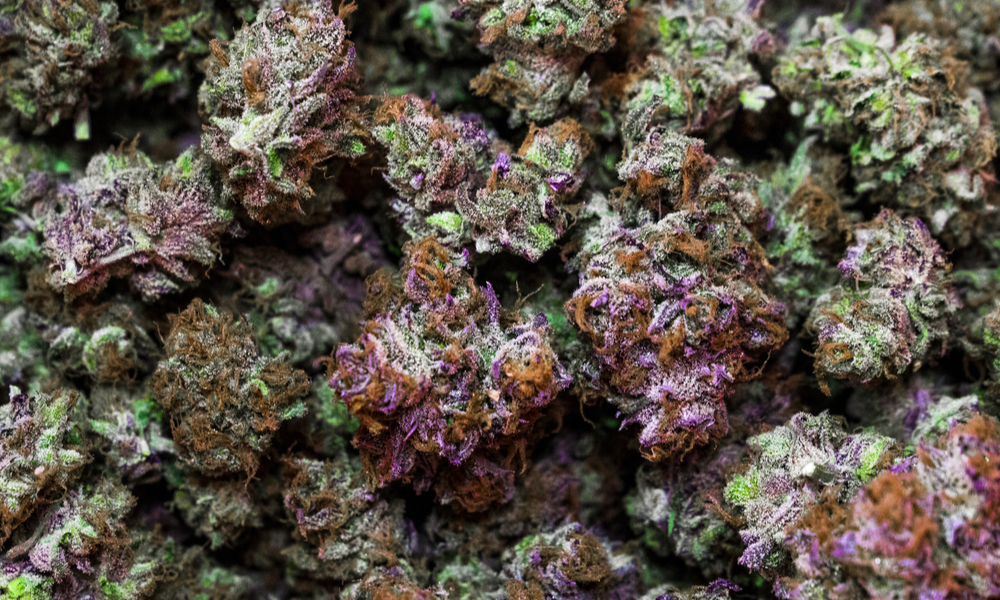Tetrahydrocannabivarin (THCV) is a cannabinoid compound discovered in marijuana and hemp plants. It's chemically comparable to tetrahydrocannabinol (THC) however with some key differences. Here's whatever you need to understand about THCV consisting of the dangers, advantages, distinctions, and similarities with other kinds of THC and more. What Is THCV? THCV is a less common cannabinoid discovered in some stress of cannabis, particularly African sativa.
 What is THCV? Understanding “Diet Weed” - Elevate Holistics
What is THCV? Understanding “Diet Weed” - Elevate Holistics
 THCV vs THC: What Are the Differences? Articles Analytical Cannabis
THCV vs THC: What Are the Differences? Articles Analytical Cannabis
 What is THCV? Understanding “Diet Weed” - Elevate Holistics
What is THCV? Understanding “Diet Weed” - Elevate Holistics
THCV has a 3-carbon side chain rather than THC's 5-carbon side chain. This distinction is subtle, but it has an obvious influence on the impact profile. THCV is rather psychoactive however only about and about. What Does THCV Feel Like? THCV has a strong energy-boosting element to it, which makes it particularly popular amongst trainees and professional athletes.
In the United States, THCV regulation is nuanced. THCV is not a Schedule I Drug, but cannabis extracts are making it somewhat ambiguous what the federal position is on THCV. The 2018 Farm Costs states that hemp plants and all derivatives of the plants are legal on a federal level, a lot of companies abide by this law and still supply THCV to consumers by only drawing out the substance from hemp plants.
If THCV is thought about a THC analog, it could be controlled in the future by the exact same guidelines as THC under the Federal Analog Act. This act states that any compound that shares a similar molecular profile as a recognized prohibited compound it's included in the exact same drug Set up category.
What Are the Effects of THCV? Advocates of THCV report that it produces an intense burst of energy and makes them feel euphoric without the mental cloudiness triggered by THC. The effects are super moderate compared to THC. The impacts are almost solely cognitive yet somehow have really little impact on headspace.
2. THCV & Hunger Some THCV users declare that it curbs their hunger. This is a common result of other focus-enhancing substances also. It's as though THCV gets rid of the distraction of other physical procedures (like appetite) in order to protect resources and attention to cognitive jobs instead. How Does THCV Work? Cannabinoids produce biological results in the body by interacting with endocannabinoid receptors.
CB1 receptors lie in the nervous system and connect with neurotransmitters in the brain to produce mind-altering effects. Interaction with CB1 sites is what gives some cannabinoids like THC their psychoactivity. THCV is a bit tricky to understand due to the fact that it's mainly a CB1 villain, suggesting it has the opposite effect as THC.
While researchers are still looking for to understand this procedure, it appears THCV is able to block the effects of CB1 in low doses and stimulate them in high dosages. CB2 receptors are discovered mainly in the body immune system. THCV is a partial agonist of CB2, but the effects of this partial activity aren't widely known, and it relatively has no noticeable impact on THCV users' experience.
As discussed in the previous section, THCV is a CB1 antagonist in low doses which is the exact opposite impact of delta 8 and delta 9 THC. This could suggest that THCV neutralizes some of the psychoactive effects of THC. This result could describe why people who use THCV feel so clear-headed especially compared to the well-known "fogginess" induced by delta 9 THC.